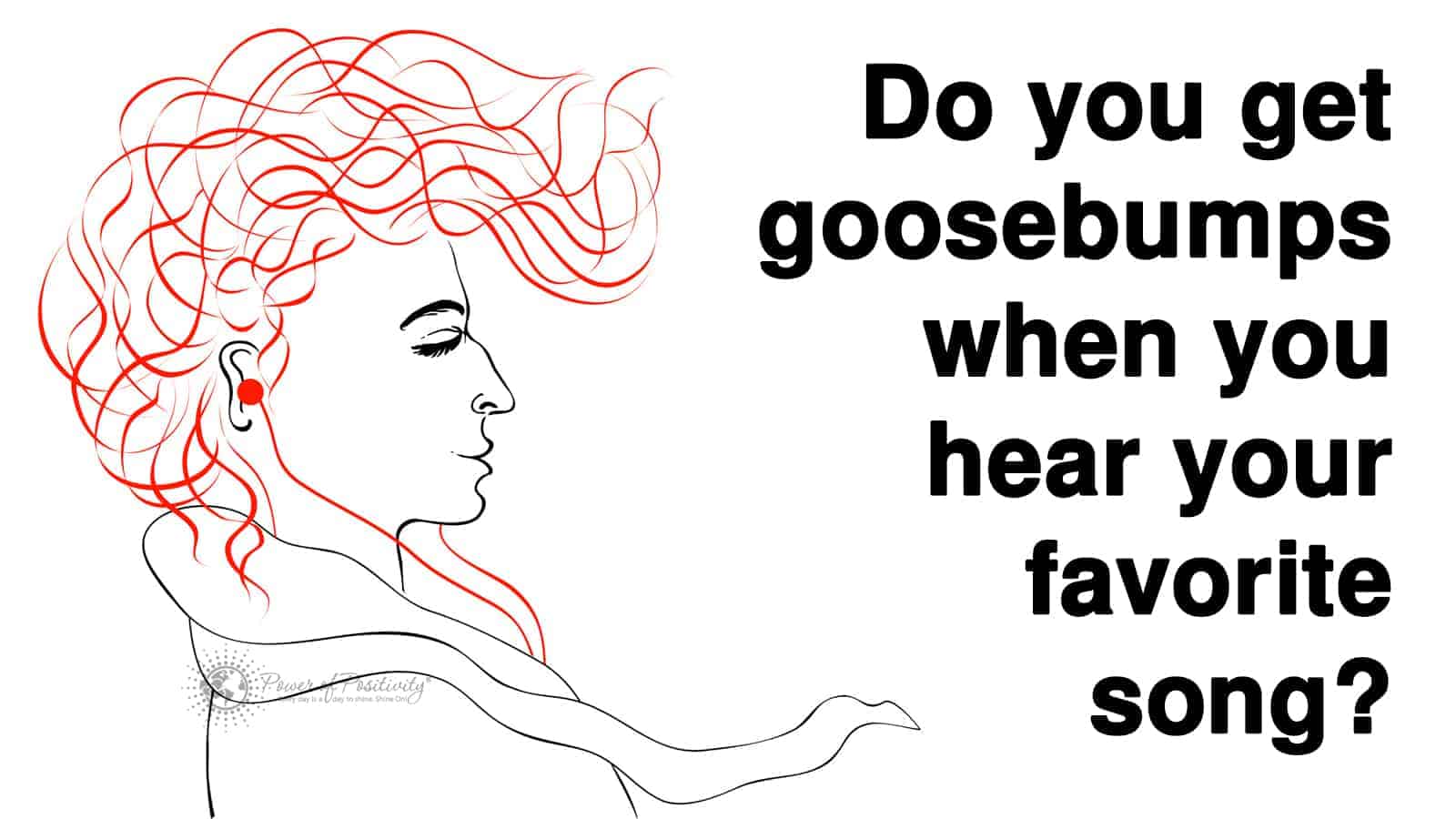When you enjoy your favorite music, it doesn’t just affect your mood – your brain actually undergoes changes based on the music you listen to.
Certain physiological processes become triggered when you listen to music you like – your heart rate speeds up, your pupils get bigger, your body temperature increases, and activity in your cerebellum in your brain increases. Finally, dopamine gets released into your bloodstream, which causes that tingly sensation you feel all over your body.
We will explain why you feel this sensation in more detail below.
Do You Ever Get Goosebumps While Listening To Music? Here’s Why…
A whopping 50% of people get goosebumps while listening to music. Research shows that music stimulates reward centers in the brain, sending dopamine to the striatum —a part of the forebrain activated by addiction, reward, and motivation. Just like sex, food, and drugs stimulate our brains, it turns out music can release those feel-good chemicals that keep us coming back for more, too.
Dopamine levels increase when you listen to songs you enjoy, but interestingly, the levels rise especially before the song’s climax. Your brain likes to predict what will happen next, which explains why your dopamine levels rise before you even hear your favorite part of the song. Also, in regards to our evolution, predicting the future might mean the difference between survival and meeting out demise. So, this provides further explanation as to why you get these tingly sensations.
When you finally hear your favorite part of the song, your reward centers release huge amounts of dopamine. The longer the wait, the more dopamine will get released into the bloodstream, which means a greater chill.
Related article: What Does Your Favorite Music Reveal About Your Personality?
Different theories on chills relating to music
In one theory, neuroscientist Jaak Panksepp found out that sad music results in chills more often than happy music does. He explains that a sad song can activate an ancient distress response our ancestors experienced when they became separated from loved ones. So, when a song comes on that makes us feel melancholy or nostalgic, this evolutionary instinct kicks into high-gear.
However, the chills people experience don’t actually sadden most people. In fact, people react in an opposite fashion most of the time. Recent research proves that sad music actually makes most people feel positively, because many consider art, even if it evokes sadness, as beautiful. You probably react to sad art differently than you do toward a bad fight with your loved one, for example.
So, this leads us to another theory. The amygdala, which governs emotions, might become activated when you listen to a sad song. Because this melancholy energy can induce a fear response in the body, the amygdala must process this to determine if you face any real threats in your immediate environment. This might make your hair stand on end, thus causing chills throughout the body. Once your amygdala realizes that you don’t face any danger, the fear will subside, but you will still experience chills for some time.
What types of music induce chills?
Many people report feeling chills from a variety of music; remember, the style doesn’t matter nearly as much as the structure of the song. Goosebumps happen most often when you don’t know what to expect – surprises can induce fear within the body, which causes the chills.
Personality also factors into the likelihood of you experiencing chills or not. Researchers Emily Nusbaum and Paul Silvia of UNC Greensboro found that people more open to new experiences have a greater chance of experiencing chills. (Possibly because open individuals have a greater likelihood of playing an instrument). The scientists asked students about how often they felt chills down their spine, got goose bumps, or felt like their hair was standing on end while listening to music.
They also asked about their experience with music, and measured five main dimensions of personality: extraversion, conscientiousness, agreeableness, neuroticism, and openness to experience. Of all these dimensions, only openness to experience had any correlation with experiencing chills. People high in openness have a knack for creativity, curiosity about a variety of subjects, have big imaginations and ideas, and experience chills while listening to music most often.
Also, researchers in Germany found that people who experienced chills had a greater likelihood of being reward-driven, and not thrill-seeking.
So, hopefully now you understand why you get goosebumps while listening to music (if you do), and find the sensation relaxing and positive!



















